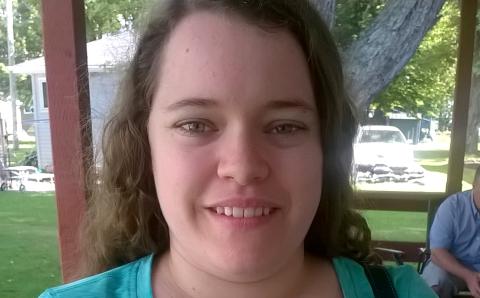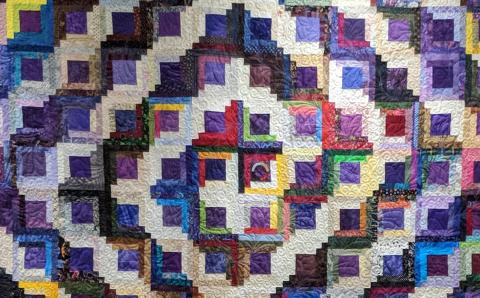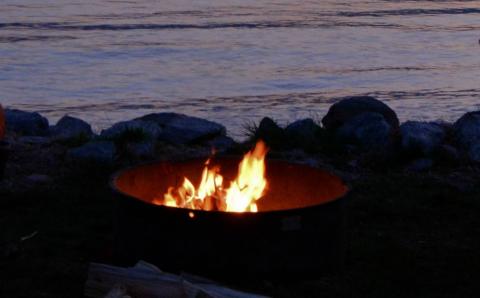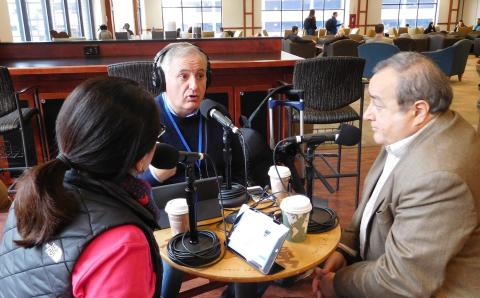I am always amazed when I see a cross-cut of a purple cabbage—intricate white and magenta waves glistening with juice. And when I pull a bright carrot out of dark black soil, I can’t help wondering: How did it get so orange?
Our faith encourages us to delight in the world around us as God does, to see goodness in God’s creation rather than dreaming of some other place. The creation story, the psalms, and passages such as Colossians 1—”all things have been created through him and for him” (v. 16)—show God’s intention for creation to flourish.
Jesus set the example for us: matter matters. He healed people’s bodily ailments. He asked his disciples to remember him in the acts of eating bread and drinking wine. In his parables he used examples from the material world—seeds and planting and harvesting—to communicate spiritual truths. And in coming to earth as God’s Son, Jesus himself became matter.
Even the new creation, we believe, will have physical attributes transformed from this world.
Because God in Christ became flesh—demonstrating God’s love for creation and and its value—I have noticed that what, how, and with whom I eat matters.
If the carrot I eat is grown in healthy soil, it will be nutrient-rich, making me healthy. Healthy people can work to create healthy soil and healthy relationships with others. A simple equation for this intricate relationship web is healthy soil = healthy carrot = healthy me.
But my relationship with what and how I eat can be healthy or unhealthy. Am I eating with gratitude and appreciation or out of fear and anxiety?
My movement toward becoming a “theological food police” began in a university “Philosophy of the Environment” class. I was appalled to learn about the treatment of animals in certain intensive livestock operations. Animals in these situations, I was taught, were not considered valued creatures, but only commodities to be bought and sold for a consumer society hungry for inexpensive, perfect-looking meat.
I stopped eating meat from the supermarket and started my journey toward fixing the world. Simple, right? I wanted to be a part of the “flourishing of all creation,” including the lives of animals I was eating, instead of supporting a system that seemed to focus only on the bottom line.
Long story short: I tried to do “the right thing.” How were the people treated who grew those bananas? Did you know celery is part of the pesticide-laden “dirty dozen”? Does that strawberry come from land that should naturally be desert? But eventually this trying, trying, trying to do right for the flourishing of all members of creation became its own idol. It turned out to be the opposite of Christian freedom instead of aligning with God’s example of love. Trying to do the right thing—eating the “clean fifteen” (ewg.org), seeking out grass-fed beef—has been tiring. And so far it has not fixed the world.
So I continually ask for God’s grace, surrendering any delusion that my calculated, often frustrated actions are bringing about shalom. I trust there are better ways than calculating and counting to participate in creation’s flourishing. Indeed, there are many broken relationships in our world—not only in how workers, animals, and soil are treated, but also in the way we expect nutrient-rich food to be inexpensive. I ask God to help transform my actions around food justice—actions I know God cares deeply about, because he became flesh to prove it—into acts of gratitude and praise rather than responsibility to fix the world.
Eventually this trying, trying, trying to do right for the flourishing of all members of creation became its own idol.
Action Steps
There is never just one right way to do things. But we are called to care for and steward God’s creation and seek healthy relationships. A very practical way to start is getting to know your food. Here are a few suggestions for getting started:
- Meet a farmer and ask how he or she cares for the soil.
- Know where your food comes from.
- Notice and be thankful for the different colors and tastes in your food.
- Find out where your garbage goes.
- Learn more about a native plant in your area. When does it bloom? Does it produce a fruit?
About the Author
After working in various roles as an educator/farmer/community builder, Lindsay Vander Hoek is experimenting with a small-scale farm in Alberta. She also is a holistic nutritionist.








